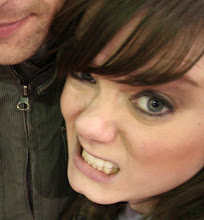Another Whinny Essay... seriously. I need to stop.
I just submitted this to adbusters. Not my finest piece of writing, but let's face it, I am slacking these days. Lack of reading equals lack of quality writing. Alas. Enjoy.
A Call For Superheroes.
Now is the time to forget the rules; all bets are off. Now is the time to shed our contemporary consumer society costumes, and truly reveal the superheroes within ourselves.
The concept of superheroes is not unusual, they have been part of our fantasy culture for decades and they cross international cultures and barriers. I would go as far as saying that as long as man has existed he has always dreamed of having super-natural powers and abilities that set him apart from everyone else and give him authority to help and save the world, or at least help with his labour.
What’s not so commonly recognised is the similarities of superheroes to the contemporary consumer world. Superheroes don masks, capes and lycra snug-fitting outfits and alter their identities to conceal who they are, or rather augment who they want to be: a crime fighter; a life saver; a bringer of justice. We are guilty of doing such things with our own purchases, and our own everyday clothes. We buy things that will make us feel like who we want to be and that we think will display our inner personality to the outside world. Really we are just fitting into genres and shoe-horning our lives into a brand we think we identify with. We have been behaving like superficial superheroes for decades, but this is now a call for real superheroes: for people to realise their potential and realise the difference they can make in this world.
No, we don’t have any kind of super natural powers, but I don’t think that possessing abilities beyond reality would actually help, but more so hinder. This is up to us. We don’t need a mask, a cape, or any kind of special outfit. We don’t need powers, or to have been born on another planet. We really don’t need to conceal our identities or suppress who we are any longer. The pressure to conform to a certain genre and to appeal to the people already leading that niche of society has reached boiling point and we can now free ourselves. It’s time to let our superhero selves reign supreme. We need to save the planet, and we need to do it as superheroes.
Let’s shed our brands, and our obsession with spending. Let’s start to help the people we know and the people we don’t know; let’s talk to our neighbours and save society; let’s go outside and experience nature and appreciate how intrinsically linked to it we are; let’s make amends with our family and friends and have no animosity; let’s look at the sky and realise how wonderful and beautiful it is; let’s not fear our own culture, anyone else’s culture and especially not religion; let’s stop working so many hours, and stop wanting gadgets, brands, and things beyond need; let’s say no more to being psychologically tormented and depressed by the cold world we have invented; let’s listen to the young and the old; let’s cook real food and no longer be a slave to work and the microwave meals made for convenience; let’s realise that the things we own will not afford us one iota of real happiness; let’s design things that will help people rather than things to make money; let’s put down the TV remote and read books; let’s enjoy life and realise that memories are what make it; let’s learn from each other and never stop learning; let’s care about the world; let’s care about people; let’s be happy; let’s care about oppression, war, and let’s no longer stand for corruption among our ‘leaders’. We have the power to rise up and take back the planet that is ours. Let’s change the world, let’s be superheroes – together.
Labels: adbusters, change, consumerism, essay, life, society, superheroes






